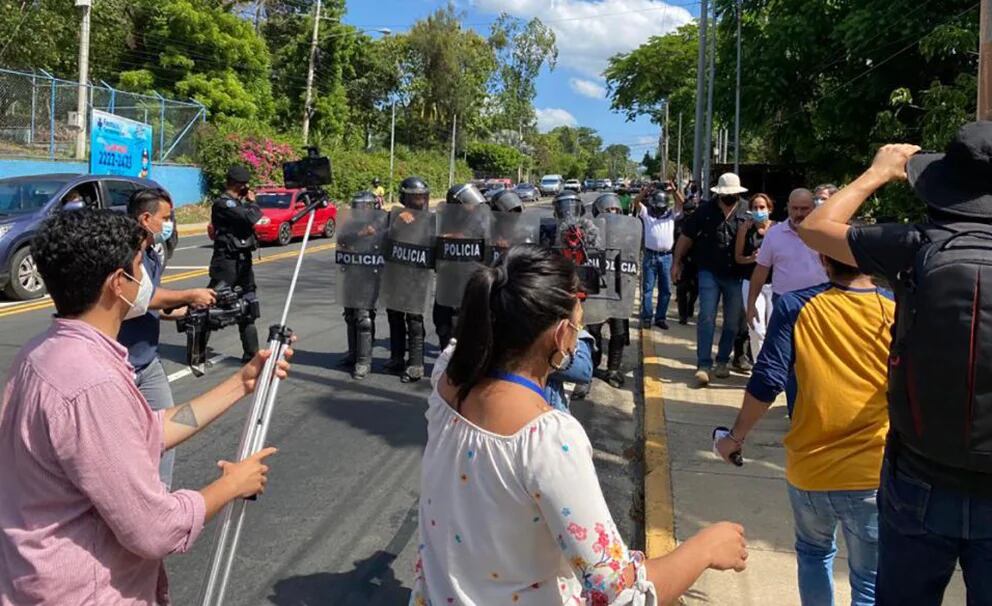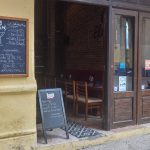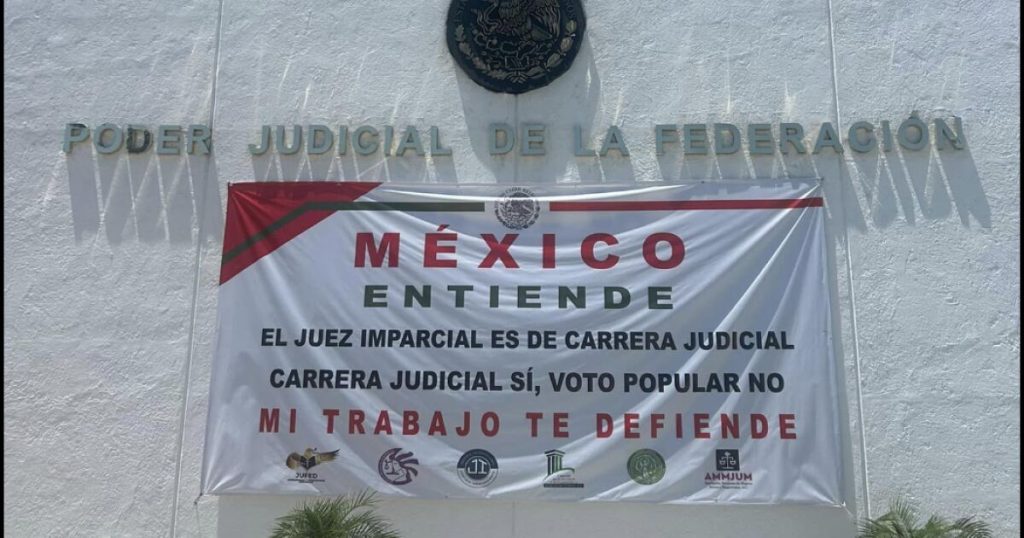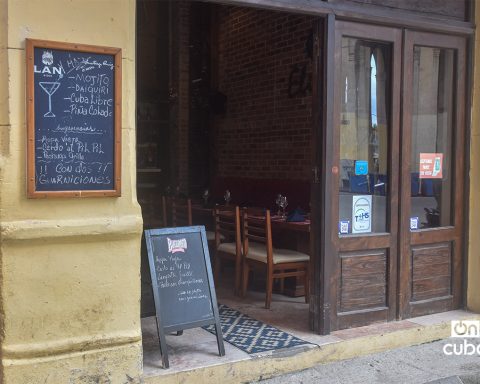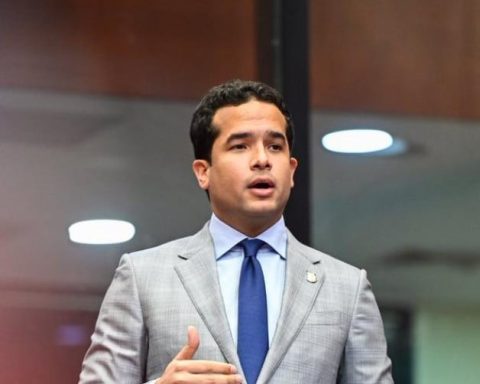The regime of Daniel Ortega and Rosario Murillo continues to hate journalists who are not subservient to them. In the first fifteen days of this month, their dictatorship has unleashed another day of hunting down journalists in Nicaragua.
Murillo, who is accused of ordering the persecution, does not care if the journalists are retired, sick or retired from the profession. She sends her repressors to kidnap them and put them under the humiliating and enslaving regime of “house arrest.” Her objective seems clear: she seeks to exterminate independent journalism and silence any voice that does not align with her authoritarian discourse, despite the fact that the country no longer has independent media because she ordered them to close and loot their facilities.
The method is crude and rude: men dressed in civilian clothes, in private cars or motorcycles with ordinary license plates, arrive at homes pretending to be other people such as messengers, parcel delivery workers or fast food distributors. “Good evening. We have a wing service that the gentleman asked for… Can you call me?” said a motorcyclist who arrived at the house where a retired journalist lived.
The family replied truthfully: “He doesn’t live here anymore and no one has asked for any food.” Two minutes later, a patrol arrived to raid the house and confiscate computer equipment, cell phones, family documents and even the Internet modem.
They threaten with jail
In another case, two police officers called from police intelligence, dressed in plain clothes, arrived disguised as “collectors” from a commercial house to remove a non-existent household appliance from the home of the family of an exiled journalist. The family refused to allow the two repressors to enter, and when they could not find the journalist, they threatened the family with jail if he did not show up the next day to sign a control sheet at the police station.
Related news: Repression and violations of press freedom forced nine other journalists into exile
The next morning, police loyal to the dictatorial family raided the house and took everything from books and family documents to a battery-operated radio and the family telephone. The brutal wave of repression, handled silently and prudently by the besieged journalists and their families, has come to the attention of human rights monitoring and follow-up organizations outside Nicaragua.
“We have seen that the current regime wants to move to a phase that we see as grey, to the point of exterminating any vestige of independent press in Nicaragua,” said independent observer José Ulloa, of the international organization Voces del Sur.
“If at one point they said ‘we’re going all out’, now I think they’ll say ‘we’re going for the total extermination’ of the press,” said the international observer. He reported that in the last three weeks they have learned of some 15 raids on the homes of journalists in Nicaragua, which has resulted in more exodus of communicators.
“Communicators are forced to migrate into exile, with the sole purpose of safeguarding their lives, their integrity and that of their families,” he denounced. Apart from the raids that have been recorded, the repressive forces of the dictatorship maintain a policy of persecution, threats, stigmatization, espionage and police control against dozens of journalists.
Hatred reaches pro-government journalists
Voces del Sur recalled that the Foundation for Freedom of Expression and Democracy (FLED) documented that threats, harassment and intimidation have also extended to the families of journalists.
“There has also been an increase in actions of discredit, slander and defamation by government spokespeople, whether they are propagandists or state officials,” said the Voces del Sur official.
Related news: Nicaraguans denounce “intensification” of repression against opponents, journalists and religious figures
The harassment and persecution has even extended to pro-government journalists, according to anonymous complaints they have sent to human rights organizations.

Official journalists are also under the dictatorship’s scrutiny. Last week, a sports reporter from Channel 8 was arrested and his whereabouts are unknown. Photo from 19 digital
One of them leaked that, in the WhatsApp groups of the official media, the most radical journalists in the service of the regime are actively collaborating with the security forces, reporting any information to harm independent journalists or those suspected of being so.
“Right now, with the uproar of July 19, some bosses and editors are laughing and enjoying the persecution. They say that they are collaborating with the operation ‘Here is Free Nicaragua’ of journalists who are coup plotters or traitors to the country.”


“And they call and pressure others to collaborate more actively. They even assign themselves missions: let’s find that one who presented on such channel or that one who was editor of such newspaper and studied with you,” the pro-government journalist denounced anonymously.
Dictatorship wants to eliminate all critical voices
Salvador Marenco, coordinator of Advocacy and Communications for the Nicaragua Never Again Human Rights Collective, confirmed that they have recently learned of the forced displacement of several journalists or former media collaborators.
He said that they learned that the entire editorial staff of another digital media outlet went into exile this month, just as the entire editorial staff of La Prensa did at the time. In July 2022, a year after the police raid and confiscation of its facilities on the Carretera Norte, the entire editorial team of the newspaper La Prensa had to go into exile.
Now, in July 2024, the dictators’ police agents have arrived at the homes of Nicaraguan journalists to raid them and place them under house arrest or signature control. Retired journalists, some with serious chronic illnesses, retired former reporters and even university professors from the extinct Central American University, are today threatened with jail if they do not show up to sign.
Related news: «Press freedom was the first casualty of Ortega’s repression in 2018,» says exiled journalist
“The group of people who have chronic or serious illnesses, older adults, for example, are in a situation of special vulnerability because they are being forced to move outside their country, where they do not have access or have difficult access to the health system, to a source of employment,” said Marenco.
In his opinion, exile “is to continue and perpetuate the violations of human rights, violations of forced displacement, of lack of employment, of a legal, social, and emotional disconnection from your country; it is a perpetuation of the human rights violations committed by the regime.”
They must continue to denounce
Marenco believes that international organizations, exiled journalists and internally displaced persons must continue to denounce the situation of harassment and persecution, as they have done through the Human Rights Collective Nicaragua Never Again.


The profession of journalism is criminalized by the dictatorship. Following harassment by the regime and the theft of facilities, the editorial staff of La Prensa had to go into exile. Photo taken from Infobae
“What the dictatorship wants, by persecuting journalists, is to normalize this situation and we cannot allow persecution, exile, criminalization, torture and lack of information to become normal,” he said.
José Ulloa, from Voces del Sur, reported that, although repression continues in Nicaragua, the documentation and reporting of cases has decreased, as reported by FLED in its report for the first half of 2024.
“This situation is understandable because people use silence or self-censorship as a protective measure, and this is worrying because in any situation, reporting and documentation always have value, because if there is no one to point the finger at, no one will pay for the damages caused by violations of fundamental rights that have occurred in Nicaragua,” said Ulloa.
Marenco agrees with Ulloa’s approach, considering that the historic resistance of Nicaraguan journalism must be supported by the international community: “in the face of these serious violations, it cannot be normalized that a country is totally censored, that an entire country cannot speak freely, that nothing can be reported.”
Missing and exiled journalists
As of June 2024, FLED reported more than 263 journalists exiled since 2018 and more than 54 media outlets closed, including the confiscation of the facilities of La Prensa, Confidencial, 100% Noticias, La Trinchera de La Noticia, Radio Darío, Radio Mujer and a dozen Catholic media outlets.
More than 100 journalists have also been prosecuted and dozens have been effectively exiled by being prevented from returning to Nicaragua. One journalist remains in detention: Víctor Ticay, sentenced to eight years in prison for covering and publishing a Catholic procession.
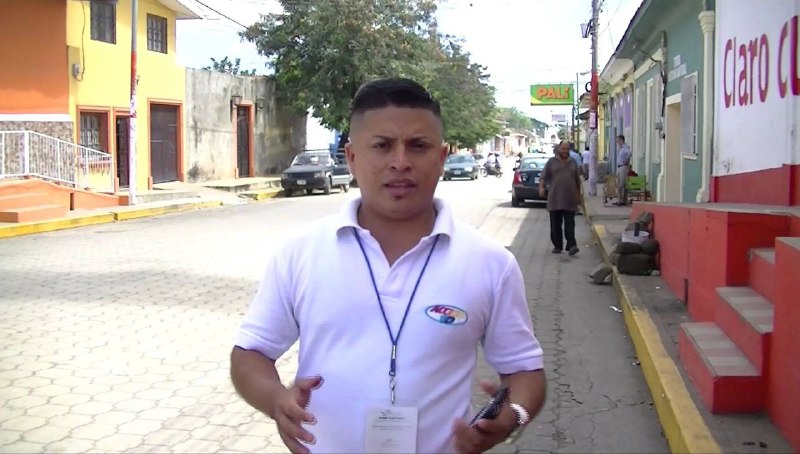

In a recent report, FLED identifies that in at least eight departments of Nicaragua (out of 17 including the two Autonomous Regions), independent journalism no longer exists, which represents 47%.
Where is Nohelia González?
The whereabouts of two journalists who were harassed by the regime in the last week are still unknown: journalist Nohelia González Valdivia and Channel 8 sports reporter Fernando Rayo.
González, former news chief of the newspaper La Prensa, disappeared on July 9 after being detained by the dictatorship’s henchmen. She had retired from journalism, is chronically hypertensive, and it is unknown why she became a target of the regime.
There has been much speculation about her case: that the dictatorship captured her, that she was expelled from Nicaragua to Panama as a result of negotiations with the regime, and then a relative said that she had been sent to the United States. However, as of this week, no one knows for sure where Nohelia is.
Eddie González, who reported the arrest of his sister Nohelia, is hospitalized after facing gunfire from police officers of the dictatorship when they arrived at his home in Estelí. Eddie’s health status is also unknown, as is why the police arrived at his home in Estelí.
At the end of last week, the disappearance of Fernando Rayo also came to light., sports reporter for the official Channel 8 and his parents Eveling González Betancourt, Ninth Civil District Judge of Managua and José Adalberto Rayo, legal advisor to TELCOR.
